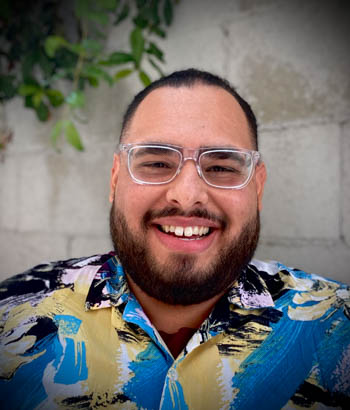Campus News
Doctoral student wins Ford Foundation fellowship for work on gender, race, and policing
Uriel Serrano recently won a Ford Foundation Dissertation Fellowship to support his research on how gender ideologies are formed in relation to carceral violence.

Uriel Serrano, a Ph.D. candidate in sociology and critical race and ethnic studies, recently won a Ford Foundation Dissertation Fellowship that will provide funding to help him complete his dissertation research. For about the past six years, Serrano has been working with young Black and Latino men in South Central Los Angeles to understand how gender ideologies are formed in relation to carceral violence.
“On the one hand, I think about how carcerality shapes the lives of Black and Latino young men, but I also look at how the youth themselves resist and organize against the carceral state,” Serrano said. “And within all that, I’m thinking about questions around gender and masculinity and emotions and well-being.”
Through observations, interviews, focus groups, and other research, Serrano has compiled a digital archive of over 150 documents that show how youth are navigating the intersection of race, gender, and policing.
He started noticing themes around how harmful experiences with policing, criminalization, or incarceration can shape young men’s ideas about manhood, particularly their relationship to their emotions. But he also saw that organized resistance offered “these really beautiful, powerful moments,” where young men could be vulnerable and share their emotions and experiences with one another.
These observations helped Serrano hone in on gender as a key interest area to explore further.
“The sociology of masculinity is often informed by the experiences of white men,” he said. “That leaves no room to think about the complexity of Black and Latino young men; both their emotional lives and these moments of vulnerability and healing, and also just the complicated nature of the inner-city context.”
Serrano’s dissertation research will aim to bring more depth to understandings of gender and to describe the broad range of impacts that policing can have.
“I’m exploring this idea of ‘carceral seepage’ as a metaphor because I think water damage is a helpful analytical lens to think about how carceral logics seep into our everyday lives and the types of damage that comes from that,” he said. “Sometimes it’s like a slow leak that happens little by little. Other times it’s like a storm or a flood: a sudden, very traumatic experience. But there are often invisible, internal consequences that are more long-term.”
Serrano plans to explore this metaphor over the coming year. He’s grateful that the Ford Foundation funding will allow him more time to focus on this research. He also plans to talk through his ideas with the young people who inspired them. Serrano says he’s looking forward to having that much-needed time for reflection.
“Given the topics that I’m writing about, I honestly believe that it requires time to think through these ideas and not rush to produce, but instead, to really sit with the experiences of the folks who give life to this work,” he said. “That’s definitely what this year means to me.”